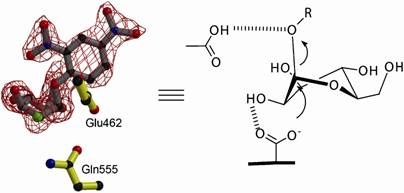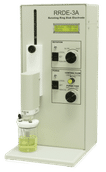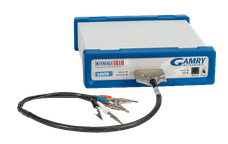Up to EUR 20 million for catalysis research
Süd-Chemie AG and Technische Universitaet Muenchen reach agreement on strategic alliance
Süd-Chemie AG and Technische Universitaet Muenchen (TUM) have formed a strategic alliance for catalysis research. In addition to basic research in the field of catalysis, a major aspect of this co-operation will be the development of innovative catalysts as a key technology to safeguard the rising global demand for energy and base chemicals on a long-term basis. Süd-Chemie is to sponsor this research work with up to EUR 2 million a year. The co-operation is based on a master agreement concluded for an initial term of ten years which, if successful, is to be extended beyond this period.
Activities are due to start before the end of the year under the name "Munich Catalysis. Alliance of Süd-Chemie and TUM". Based on an industry-on-campus concept, TUM scientists will be working together with researchers from Süd-Chemie on central issues involving both basic and applied research in the field of chemical catalysis.
In addition to developing innovative catalysts and preparation methods, research will focus on identifying new ways of manufacturing basic chemicals, one of the key topics being the inert gas, carbon dioxide. Among other things, the possibilities for efficiently separating this omnipresent so-called greenhouse gas from power plant processes and reusing it in chemical production cycles are to be explored, for instance as a synthesis module in the manufacture of energy sources or other base chemicals. Attention will also centre on new ways of creating high-grade intermediate products for plastics, so-called olefins, without using oil.
Catalysis is seen as a vital technology for industrial materials conversion processes in the 21st century. Catalysts make it possible for most chemical products to be manufactured using low-energy and resource-sparing processes. They also play an essential role in promoting the targeted replacement of oil as a primary resource for the chemical industry by assisting in the manufacture of chemical products based on alternative resources, such as natural gas, coal or renewable raw materials.
This strategic co-operation will play an important role in the TUM´s overall strategy of bundling university research activities in the field of chemical catalysis. The research alliance is to be integrated into a new central institute for catalysis research set up by the TUM (Catalysis Research Center, CRC). As from 2012, it will be housed in the new CRC building currently under construction on the TUM campus in Garching. The CRC bundles the TUM´s broad scientific spectrum in the field of catalysis research with focus on industry-related research.
"The overriding goal envisaged by Munich Catalysis is to develop key catalytic technologies on a sustainable basis which – in view of the limited fossil resources and a continuing rise in the global consumption of energy and base chemicals – make the greatest demands on research alliances between university and industry," says the TUM´s President, Professor Wolfgang A. Herrmann. "As an entrepreneurial university, our research activities pursue the path of innovation to the stage of technical realisation. In the field of catalysis, we have selected Süd-Chemie since this partner has a globally successful catalyst business."
Upon signing the agreement, Dr. Günter von Au, Managing Board Chairman of Süd-Chemie AG, said: "Chemical catalysis is a key technology and will be making a major contribution to the development of economically and ecologically sustainable ways of manufacturing fuel and chemicals in times when resources are in increasingly short supply. This pioneering venture is a means of bundling our numerous scientific co-operation projects with the TUM in the field of catalysis research based on a future-oriented and highly efficient industry-on-campus concept. In this way, we will continue to strengthen the TUM´s academic base in this high-potential sector, while also achieving a sustained improvement in Süd-Chemie´s innovative strength."
Other news from the department science
These products might interest you
Most read news
More news from our other portals
See the theme worlds for related content
Topic world Synthesis
Chemical synthesis is at the heart of modern chemistry and enables the targeted production of molecules with specific properties. By combining starting materials in defined reaction conditions, chemists can create a wide range of compounds, from simple molecules to complex active ingredients.

Topic world Synthesis
Chemical synthesis is at the heart of modern chemistry and enables the targeted production of molecules with specific properties. By combining starting materials in defined reaction conditions, chemists can create a wide range of compounds, from simple molecules to complex active ingredients.
































































